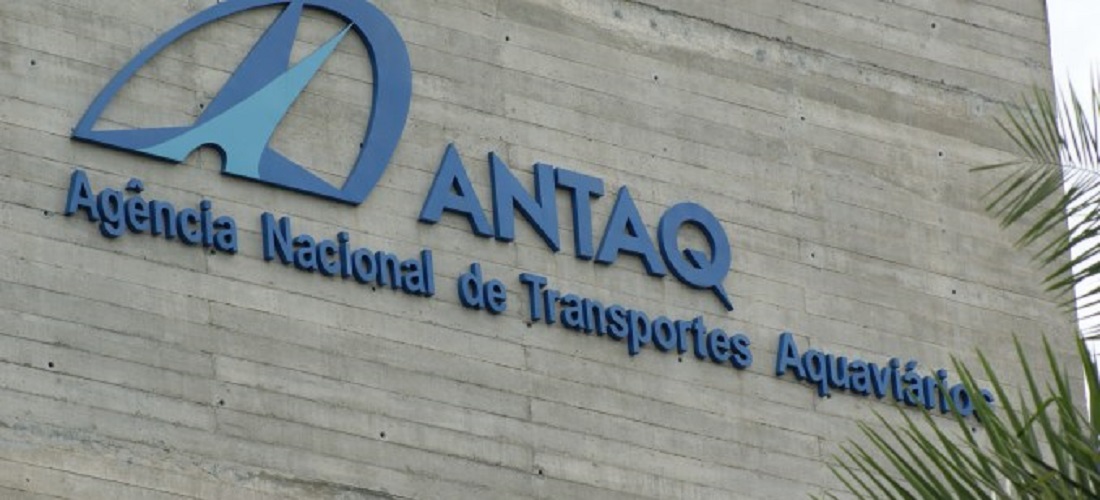
ANTAQ approves study on climate change impacts in Brazil’s public ports
Jun, 29, 2023 Posted by Gabriel MalheirosWeek 202324
Brazil’s National Waterway Transportation Agency (ANTAQ) has approved the final stage of the study on the “Impacts and Risks of Climate Change in Public Ports.” Director Flávia Takafashi composed the study in partnership with GIZ (Deutsche Gesellschaft für Internationale Zusammenarbeit).
The study was approved during an Extraordinary Board Meeting on the 21st. During this stage, a methodological guide was presented for conducting climate risk surveys and developing adaptation measures for port infrastructures.
About the study
Director Flávia Takafashi explained that the ANTAQ-approved study aims to provide public and private port entities with the necessary tools to pursue new certifications and expertise on environmental issues.
“Our goal is to contribute precisely to the scenario of voluntary environmental certifications that ANTAQ offers the market through the methodological guide we are now approving,” she said.
The “Impacts and Risks of Climate Change in Public Ports” study began in January 2020 when the cooperation agreement between ANTAQ and GIZ was signed to undertake the project in three axes.
Axis 1, completed in 2021, included a study that surveyed the primary climate threats, risks, and impacts of climate change in public ports in Brazil. The objective was to create a ranking of 21 Brazilian public ports, analyzing current and future climate risks in 2030 and 2050.
Axis 2 of the study, delivered in December 2022, focused on climate risk surveys and adaptation measures for port infrastructure. Three ports were studied in this stage: Porto de Santos (SP), Aratu (BA), and Rio Grande (RS).
According to the findings, all three ports are at risk of disruptions in cases of heavy rain. They also face risks such as infrastructure exposure due to inclement weather caused by a 0.2m Sea Level Rise, resulting in increased maintenance demands, cost growth, and reduced overall capacity.
The study also revealed that none of the three ports had systematized data on structural damage, meaning there are no infrastructure and superstructure impact records. Additionally, data on port operation disruptions were limited, covering only a short period, which posed a significant limitation to the study.
In the final stage, a methodology was presented that included guidelines for conducting case studies. The aim is to enable all port authorities to conduct their own climate impact analyses and develop strategies to mitigate them.
Memorandum of understanding
Shortly after the Board Meeting, the Director General of ANTAQ and the Director General of GIZ, Michael Rosenauer, signed a Memorandum of Understanding (MoU) to cooperate in national and international programs related to sustainability and new green energy sources.
The purpose of the MoU is to facilitate ongoing collaboration in significant areas of mutual interest, including producing green hydrogen, implementing sustainable measures in ports, climate change adaptation in the context of port-city relations, decarbonization, and exploring new energy sources.
These actions are integrated within the framework of projects such as Supporting Brazil in the Implementation of the National Agenda for Climate Change Adaptation – PROADAPTA, Policy Program on Climate Change – POMUC, Protection and Integrated Management of Coastal and Marine Biodiversity – TERRAMAR, and International Hydrogen Ramp-Up Program – H2UPPP.
Protocol of Intent
Following the signing of the protocol with the German development agency, a protocol of intentions was also signed among ANTAQ, the Brazilian Association of Port Terminals (ABTP), and the Association of Private Port Terminals (ATP). This document emerged from an understanding between the Agency and entities within CooperaPortos, an event that brings together representatives from the public and private sectors to discuss waterway sector issues. CooperaPortos is a top initiative of ANTAQ’s Environmental Agenda.
The objective of this document is to promote information exchange and collaborate on annual joint actions for the development of projects, initiatives, and best practices among companies, entities, the academic sector, and public bodies within the Brazilian port sector. Some topics covered include governance, quality management, environmental management, occupational health and safety management, social responsibility, port operations, research development and innovation, sustainable development goals, and ESG.
-
Grains
Aug, 29, 2023
0
Increased grain exports put Brazil logistics under stress
-
Grains
Jun, 21, 2024
0
Dollar exchange alters pace of soybean sales in Brazil and Argentina
-
Meat
Mar, 07, 2024
0
Paraguayan Pork Gains Traction in Taiwanese Market, Offers Opportunity for Export Growth
-
Economy
Feb, 26, 2025
0
Government drops plan to curb food exports amid inflation concerns



